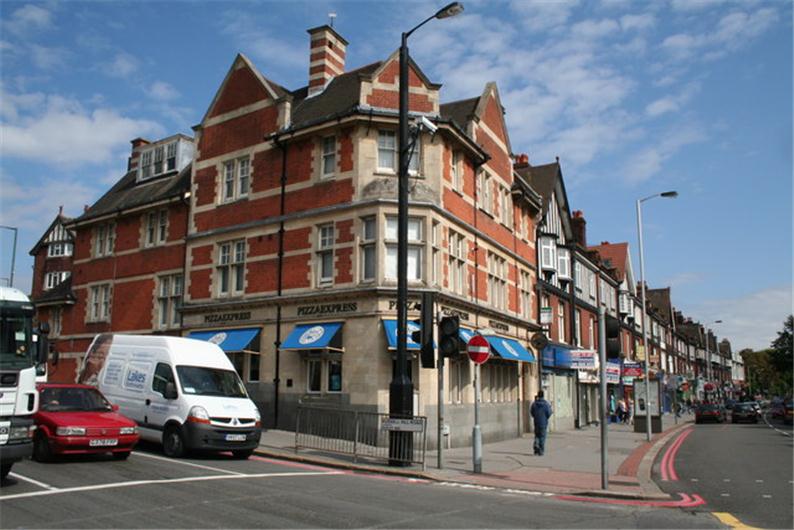Business Visitor Visa UK
A Business Visitor Visa is the best way to stay in the UK for a short-term business trip. It is ideal for those looking to engage in business activities such as conferences, trade shows, and meetings.
It is essential to know what is permitted on a UK Business Visitor Visa and whether it covers all the activities you aim to participate in during your stay. Call us on +44 (0)333 414 9244 for immediate help and assistance with Business Visitor Visa applications.
Read our 1001 reviews
Request a call back from our immigration experts
Benefits of Choosing IAS For Your Visitor Visa Application
If you are planning to travel to the UK and require a visitor visa, then our immigration lawyers are on hand to provide advice and application assistance.
Whether this is your first application or you applied on your own before but were refused the visa, we can help.
No matter the reason why you plan to visit, the IAS range of expert services can help ensure your application is submitted quickly and to a high standard. Benefit from:

Tailored advice to ensure you are applying for the correct visa.



A personal immigration lawyer who can answer all queries.



Access to UK-specific knowledge of the immigration routes.



Confidence your application will be complete and comprehensive.
Services we Provide
What is the UK Business Visitor Visa?
The UK business visitor visa allows foreign nationals from non-EEA countries to travel to the UK for a short-term stay, usually up to six months, to perform certain business activities. A range of business visas are available for UK travel, but the business visitor visa falls explicitly under the standard visitor visa category and permits some business activity during your UK stay. Details of which can be found below.
What is Permitted on a UK Business Visitor Visa?
Permitted activities that you can complete during a short-term stay under the UK business visit visa include allowing you to:
- Attend business appointments such as conferences, meetings, training, seminars, and interviews.
- Perform either a one-off or a short series of talks and speeches. As with all other business activities under the business visitor visa, you can’t perform paid work.
- Negotiate and sign business deals or contracts. Agreeing and negotiating trade agreements and other deals for yourself or an overseas employer while travelling to the UK under the business visit visa is permitted under Home Office immigration rules.
- Check international goods and services. If conducting business on behalf of an overseas employer, overseas company or global business, you can take a short-term visit to the UK to check goods and services. If you plan to receive international business payments for services and trade conducted overseas, you can visit the UK to check international goods beforehand.
- Attend trade fairs for business purposes, as long as you do so for promotional purposes. You can’t directly sell or make a profit.
- Conduct research and gather information for the benefit of overseas business. Activities such as market, industry or technological research are permitted.
- Carry out site visits and inspections. Travelling overseas for general assessment and evaluation is often necessary for international projects and businesses. This is allowed under the business visitor visa.
- Liaise with UK customers. Provided that any gainful employment is performed overseas, the UK government allows business visitors to travel to the UK for a briefing on UK-based customer requirements or needs.
- Search for funding for a UK business. If you want to start, take over, join or run a business in the UK, the business visitor visa will allow you to travel to the UK to search for the funding you need. However, it doesn’t allow you to perform these business duties during your short-term stay here – for that, you’ll need the tier 1 innovator visa.
- Perform academic research or accompany international students on a study abroad programme. Provided you don’t seek gainful employment in the UK, you’re allowed to travel under the standard visitor visa (business category) to perform unpaid academic work.
- Take an exam such as the Professional and Linguistic Assessment Board (PLAB) or the Objective Structured Clinical Examination (OSCE). If you plan on coming to the UK as a foreign non-EEA national to live and work as a professional, such as a doctor or dentist, you must prepare in advance. While the short-term business visitor visa won’t let you come to the UK to work, you can visit to sit any necessary examination in preparation.
What You Can’t Do With A Business Visitor Visa
The business visitor visa (standard visitor visa) won’t allow you to perform some business activities while staying in the UK. While it may seem comprehensive, the UK business visitor visa rules limit the business duties you can perform during a short-term stay in the UK with the visa. Some of the things you can’t do with a business visitor visa include:
- Doing paid or unpaid work during your stay.
- Live or work in the UK for an extended period.
- Receive any public funds.
- You won’t be able to apply for business grants or bursaries – even if you plan on eventually running, taking over, or joining a UK business. You’ll need to prove evidence of sufficient funds to support your stay.


What if my business activity is not permitted under the Business Visitor Visa?
There is a range of work and business visas available to non-EEA nationals, so it’s essential to be clear on whether the visa application you’re submitting will allow you to perform the business activities for which you’re travelling to the UK.
If you plan to engage in paid business engagements other than attending meetings, conferences, and other allowable business activities, you may need to apply for a visa other than the UK Business Visitor Visa.
For example, the Skilled Worker Visa allows you to come to the UK for paid work, and the Innovator Founder Visa enables you to start and run a business.
The business visitor visa UK falls under the standard UK visitor visa and, as such, carries many of the same limitations. UK immigration laws are stringent, and you must be clear when preparing your visa application.
If you don’t provide sufficient evidence of your eligibility and intent to travel to the UK, you risk having your application refused by the Home Office or being turned down by immigration authorities when you arrive.
A wide range of work and business visas are available for people coming to the UK from the United States, the Middle East, Asia, Africa, Australia, and other non-EEA regions, so knowing which visa application is correct for you is essential.
It can be overwhelming to decipher which visas allow you to perform which business duties in the UK. If you need help, you can contact us.
Our UK Business Visitor Visa Services
The list of business activities you can and can’t perform under the standard visitor visa (business visitor visa) is long and can be confusing. If you’re still unsure which work or business visa will cover your needs, the expert immigration lawyers here at IAS are always on hand to provide advice and assistance.
Just get in touch to discover more about how we can help – we provide a comprehensive advice package for those needing a guiding hand, and our application package means you’ll get a thorough service with a dedicated caseworker who will help you to collate and strengthen your visa application with supporting documents.


UK Business Visit Visa Application Fees
In addition to the regular short-term, single-visit visa, long-term business visit visas are available. These can be obtained for durations of two years, five years or ten years at an extra cost. These allow you to enter and leave the UK without having to reapply for a new visa during the validity of your visa. You’re still limited to a maximum stay of six months for each individual visit.
- Short-term (up to 6 months) Visa: £127
- Longer-term (up to 2 years – 6 months per visit), Multiple-Entry Visa: £475
- Longer-term (up to 5 years – 6 months per visit), Multiple-Entry Visa: £848
- Longer-term (up to 10 years – 6 months per visit), Multiple-Entry Visa: £1059
UK Business Visitor Visa Processing Time
If you’re planning a business trip to the UK, you should submit your business visitor visa application forms between three months and 48 hours before your expected travel date. You can apply up to three months before your travel date, and we always think the earlier, the better.
Whether you’re applying from outside the UK via a local embassy or through an online application, visa nationals from countries such as India, Pakistan, the United States, the United Arab Emirates and other non-EEA nations should expect a decision on their visa within around three weeks of applying. We have a guide available that shows you how to track your visa status during processing.
If you’ve got an urgent appointment in the UK, such as a business interview or conference, and you’re willing to pay extra costs to make your appointment, priority services are available. You could choose either:
- The Priority Service ensures a decision within five working days of applying. This service isn’t available in every country, so it’s worth checking with your local visa application centre to ensure it’s available. It costs £500, in addition to your visa application fees.
- The Super Priority Service ensures a decision is made within 24 hours of applying. It comes with an additional cost of £1000 but is useful if you’re in a rush to get your visa application approved as quickly as possible. As with the Priority Service, it’s worth checking that this is available in your country by visiting your local embassy or visa application centre first.
If you’re struggling with putting your business visitor visa application together and have an urgent business appointment in the UK that you can’t afford to miss, our qualified lawyers here at the Immigration Advice Service can help.
We understand that the entire process can be frustrating and overwhelming. That’s why we offer our Fast Track Application Service. We’ll help you create a comprehensive application and ensure all supporting documents are correct. We will book you one of the Home Office’s Same-Day Premium slots and write a supporting Letter of Representation to emphasise the merits of your case. Get in touch with us to find out more.
Required Documents For Business Visitor Visa Application
To be eligible for the UK business visitor visa, it’s important to show the Home Office several general UK business visa requirements:
- A valid passport or travel document.
- A recent passport-sized photograph that meets the UK visa photo requirements.
- You fully intend to leave the UK at the end of your visit. You must provide travel documents stating the dates you plan to visit the UK.
- You have proof of your intended business activities in the UK, such as letters of invitation from UK companies, business meeting details, or conference registrations.
- You have sufficient funds to support and house yourself and any dependents throughout your visit without relying on public funds. You must provide details of your accommodation stay in the UK. You will need evidence of sufficient funds to support your trip, including bank statements or financial sponsorship letters.
- You must be able to afford both your inward and outward journey to the UK. Details of flight bookings or other travel will be required.
For your visa application to have the best chance of success, you’ll need to provide a portfolio of supporting documents that prove your eligibility and travel intent.
First and foremost, you’ll need to provide details of your current passport or other valid travel identification. You must have the right to travel to the UK, but beware that any required documentation you provide will need a certified translation if it isn’t in either English or Welsh.
You may also need to provide:
- An immigration record and details of your travel history within the past ten years.
- Details of an overseas employer or overseas company with which you are associated.
- UK residence details for your visit
- Your current overseas contact and address details.
- Your parents’ names and dates of birth, as well as the contact details and passport number of your partner, if applicable
- Details of any past criminal or immigration offences you may have committed
- Any other documents specific to your purpose of visit.
Ensuring you have a strong portfolio of supporting documents that emphasise the merits of your case is crucial to a successful visa application. If you’re confused or unsure about how to proceed, don’t hesitate to contact the team here at IAS. Our qualified lawyers have dealt with all aspects of immigration law and are best placed to give you the guidance and assistance you need.


How To Apply For UK Business Visitor Visa?
Before applying, ensure you are eligible for a UK Business Visitor Visa. This visa is typically for individuals who want to visit the UK for short business-related activities. If you qualify, visit the official UK government website for visa applications and create an account. Complete the online visa application form.
Depending on your nationality and where you’re applying from, you may need to provide biometric information (fingerprints and a photograph) at a local visa application centre. Check if this requirement applies to you. Then, you must pay the visa application fee, which varies depending on the type of visa and your location. You can usually pay this online as part of the application process.
Some applicants may be required to attend an interview at their local visa application centre. If an interview is needed, you will receive instructions on when and where to attend. You can submit your application and supporting documents online or at a visa application centre.
If your visa is approved, you’ll receive a vignette in your passport that allows you to enter the UK. Make sure to read the conditions of your visa carefully. With your approved visa, you can travel to the UK for business activities within the visa’s validity period.
Table of Contents
Table of Contents will appear here.Legal Disclaimer
The information provided is for general informational purposes only and does not constitute legal advice. While we make every effort to ensure accuracy, the law may change, and the information may not reflect the most current legal developments. No warranty is given regarding the accuracy or completeness of the information, and we do not accept liability in such cases. We recommend consulting with a qualified lawyer at Immigration Advice Service before making any decisions based on the content provided.
Frequently Asked Questions
While you can’t stay for longer than six months on any visitor visa in the UK, you can get a visa for multiple visits.
Long-term visit visas are available for durations of two years, five years or ten years at an extra cost. This still only permits single visits of up to 6 months, but will allow multiple visits during the validity of the visa.
If you’re an academic visitor using the business visa in order to come to the UK for research, it’s possible that you might be able to stay for up to twelve months. For academic visitors from non-EEA regions such as America, Asia, Africa, the Middle East, South America and Australia, it’s possible to apply for a Biometric Residence Permit (BRP). This will allow you to stay for up to twelve months instead of the usual restriction of six months. It will still be necessary to provide the required documentation proving that you have sufficient funds to support yourself during your stay, and you won’t be able to access public funds while in the UK.
Academic visitors in the UK who choose to stay for longer than six months must still prove that they are highly qualified in their field or industry. You still can’t engage in gainful employment, whether through paid or unpaid work. You’ll need to prove that you’re either carrying out your own research, assisting someone else’s, or taking a temporary and unpaid teaching role in the UK.
If you’ve used the UK business visitor visa to travel to the UK to search for funding or investment, it’s likely that you’re planning to set up a new business in the UK. However, the standard visitor visa (business category included) is a short term visa that only permits you to stay for six months and doesn’t allow you to perform paid or unpaid work while in the UK. If you want to establish a new UK business, you’ll have to take the innovator founder route.
If you want further guidance about how best to strengthen your case and give yourself the chance of visa approval, here at IAS we have qualified lawyers experienced in immigration law capable of providing assistance and advice.
If you’ve been invited by and received international payment from a UK business to visit as an expert in your profession, you may be wondering whether the business visitor visa is applicable to you. In fact, there’s a specific visa category that suits your needs – the permitted paid engagement visa. This is a short term visa that allows you to travel with invitation to perform gainful employment in the UK.
Often used by professionals such as academics, performers, researchers and artists, the permitted paid engagement visa allows experts to travel and work in the UK for a short period of time. You may need to provide an invitation letter as part of your visa application. The PPE visa allows you to stay and work in your field for a one month period. If you’re a visiting professor, an overseas scientist or other academic visitor from the United States, South America, Australia, Asia, or other non-EEA regions, the PPE visa will cover you for a one month period of paid or unpaid work.
The permitted paid engagement visa is limited in that it doesn’t allow visitors to bring dependents such as family or friends, receive public funds, or extend their visa beyond the one month period. While staying in the UK under the PPE visa, you are strictly limited to only performing the work in the industry, profession or field for which you have been invited – you can’t undertake any extra work duties while visiting, even if you receive an additional invitation from a UK business. When your visa application forms have been filled in, the visa processing time is concluded and your application has been approved, you’ll receive a clear and definite outline of the work you are allowed to do while visiting the UK.
The exact criteria for applying for the permitted paid engagement visa includes:
You have received an official invitation from a UK-based business, organisation or client. As an expert in a profession such as medicine, dentistry, music, academia, or other similar fields, you may receive a request to visit the UK to perform contract work over a short period of time. This is where a visa application for the PPE visa is applicable. This is an alternative route to being sponsored under the points-based visa system.
You are a foreign visa national from a country outside the EEA (European Economic Area) or Switzerland. If you receive an invitation to visit and work for a UK-based business and you’re a citizen of a European nation within the single market, you won’t need to apply for the PPE visa. However, if you’re a visa national travelling from a non-EEA country such as the United States, China, India, or Australia to perform contract work and business in the UK, you’re eligible for the PPE visa.
You can prove your eligibility and intent to travel to the UK in your visa application. You can check the PPE visa eligibility requirements on the gov.uk website. These include being over 18, intent to travel and remain in the UK for one month only, being able to prove sufficient funds to support and house yourself, as well as proving that you can pay for both your inward and outward journeys.
If you’re planning to visit the UK in order to invest a large sum of money into a UK business, you can no longer apply for a new Tier 1 (Investor) visa. Instead you can consider Innovator founder visa which allows international entrepreneurs to start a business in the UK.


What our clients are saying
How our UK Immigration Lawyers can help
At the Immigration Advice Service our lawyers specialise in a wide range of UK visas, nationality and asylum applications and have represented clients in various successful complex and high-profile cases.















